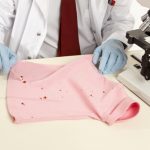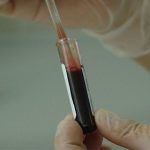WA Government Defensive Over DNA Fiasco

An inquiry into government pathology service, PathWest, has found 11 anomalies in the forensic testing of samples relating to six of the 19 criminal cases examined.
The revelations have put the state government on the back foot, with health minister Roger Cook claiming the abnormalities did not contribute to the defendants in those cases being convicted.
Pathwest bungles
As previously reported, PathWest was slammed after a man was wrongly convicted of a 2004 home invasion after the laboratory issued an expert certificate incorrectly linking him to DNA found at the crime scene.
It transpired that the man had the same name as the person who actually matched the crime scene DNA, and that the miscarriage could have been averted if the lab had simply checked the man’s date of birth.
Over and above the injustice caused by the bungle, the incident highlights the immense power of DNA evidence – which, in that case, brought about a conviction in the absence of any other incriminating evidence.
Attorney General John Quigley told the media on Thursday that the matter had been referred to the Crime and Corruption Commission, after it was revealed PathWest failed to disclose the error for more than a year.
Systemic failures
That bungle came to light less than a month after one of PathWest’s leading DNA analysts, Laurance Webb, was sacked for repeatedly breaching testing protocols, including regularly failing to verify his test results.
The state’s Director of Public Prosecutions was forced to review 27 cases involving Mr Webb, after it found his results had not been independently confirmed as required.
“To have his results independently verified by his peers, that’s a protocol that’s required by PathWest before certificates of analysis are taken to court or before he gives evidence,” the attorney general explained.
Current inquiry
The present inquiry, led by Alastair Ross AM, is reviewing a random sample of results between 2002 and 2017, with a view to making recommendations for reform and determining whether it is necessary to report further errors to the Crime and Corruption Commission.
“I am deeply concerned that breaches and errors by PathWest have compromised evidence and in one case led to a wrongful conviction,” Mr Cook stated.
“The review will consider the adequacy of internal and external communication mechanisms in relation to routine results and where breaches of protocols have occurred.”
Reform
Mr Ross has so far made 10 recommendations designed to maximise the prospects of results being reliable, including ensuring that all results are peer reviewed.
He has also recommended the implementation of uniform testing processes and procedures for all laboratories, to promote consistency and accuracy. “FDB should, as a matter of priority, initiate the investigation, development and implementation of a single, uniform, forensic item numbering and labelling system,” Mr Ross stated.
He has further recommended the “urgent upgrading” of Forensic Biology Department offices, finding them to be cluttered and inadequately secured, creating risks of error and infiltration.
Conflict of interest
Former High Court Justice Michael Kirby previously criticised the conflict of interest inherent in having the same entity which prosecutes individuals – the state – responsible for something as important to the outcome of those prosecutions as forensic analysis and reporting. He expressed the view that:
“Effective facilities [should be] provided to suspects to permit them a secure independent scientific scrutiny of DNA samples alleged to relate to them. It is important that the relevant experts should not be entirely within the employ of the state. Just because a result is produced by an expert or a machine is no reason to accept it without further questioning”, he remarked.
Despite all of these concerns there is no indication thus far of a move towards the independent analysis of forensic samples.







